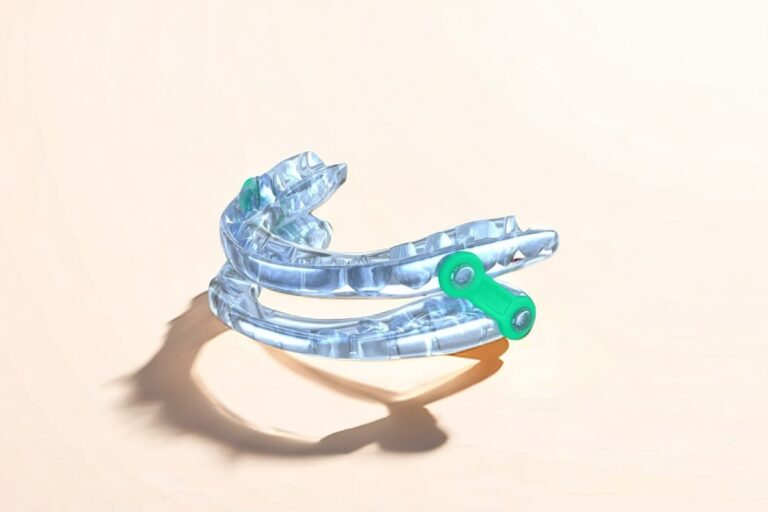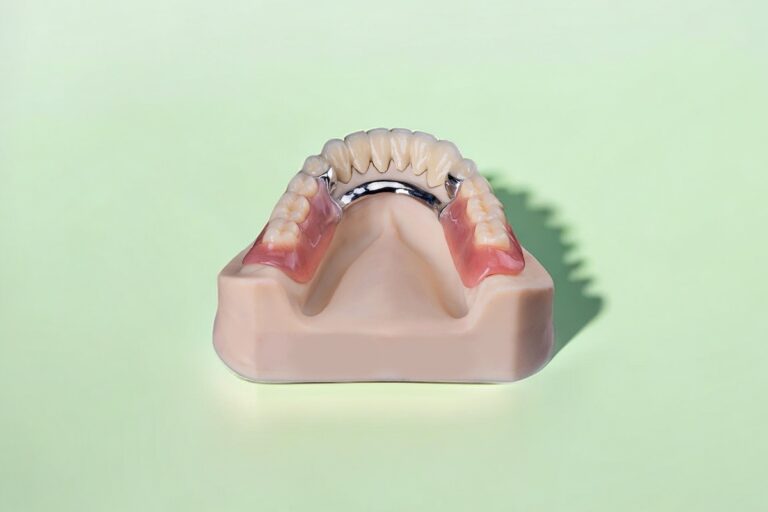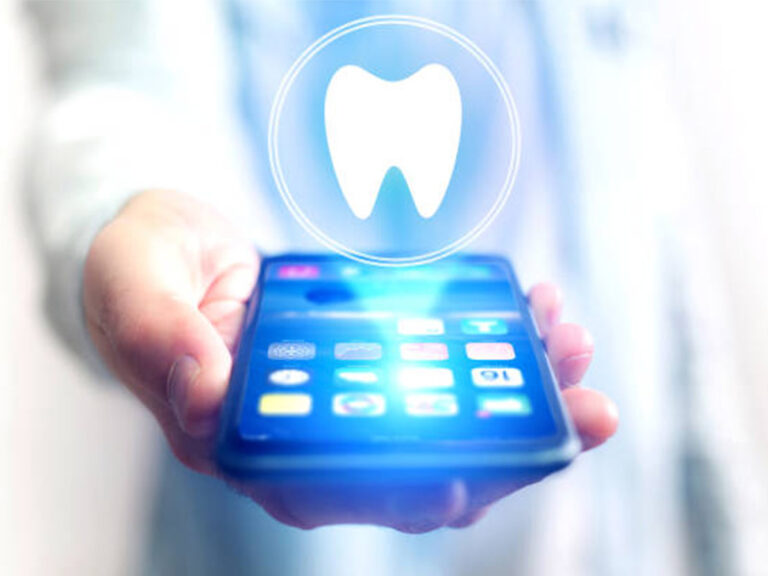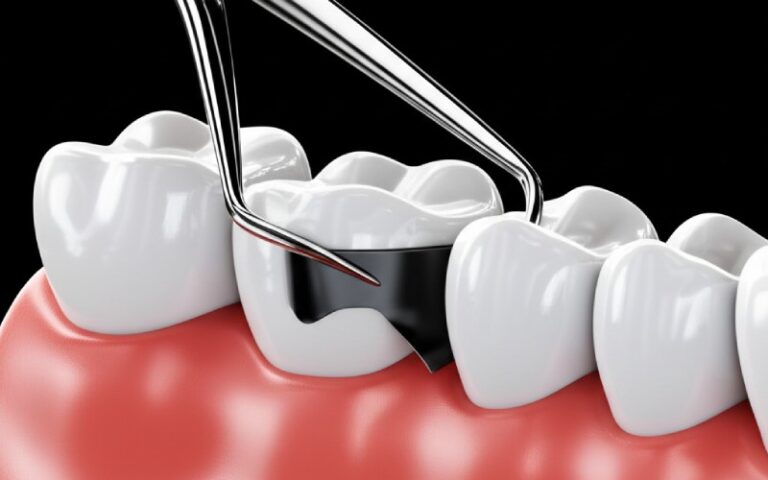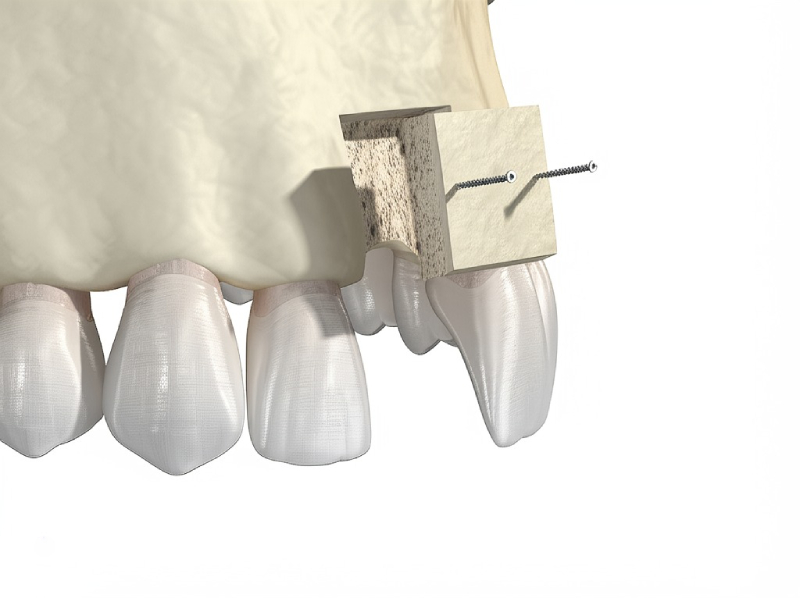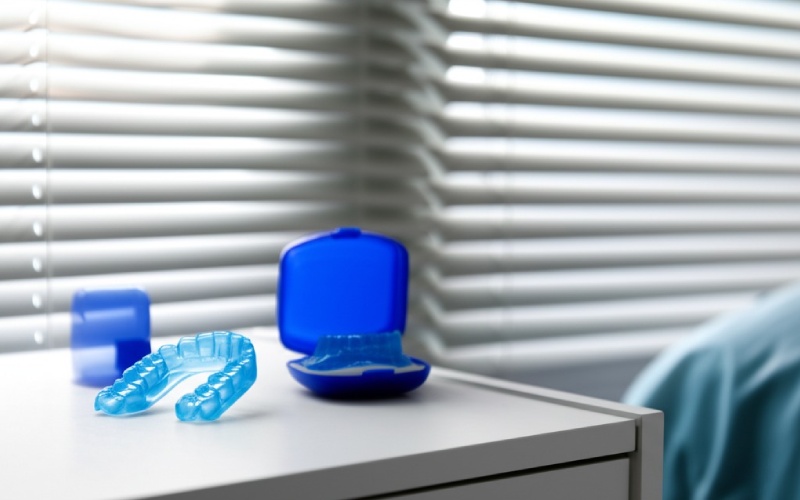
Over-the-Counter Snoring Mouthguards: A Doctor’s Guide to Choosing, Using, and Effectiveness
Snore Less, Sleep Better: Your Straight-Talk Guide to Over-the-Counter Snoring Mouthguards
Have you ever been woken up by someone’s snoring, or even realized you’re the one making all that noise? A lot of people snore, even if we don’t like to talk about it. You might be wondering, “Do those mouthguards from the drugstore really make a difference, or am I just wasting my money?” That’s a fair question. Your sleep—and maybe your relationship—depends on it.
Maybe you just want something that works but don’t want to go to a sleep doctor or spend a bunch of money at the dentist. You’re after the facts, not some hidden sales pitch. Most of all, you want to make sure what you’re doing is safe.
So let’s run through exactly what these over-the-counter (OTC) snoring mouthguards are, how they work, who they help (and who they don’t), and what you can do to sleep better and quieter.
Table of Contents
1. What Are Over-the-Counter Snoring Mouthguards?
Let’s start simple: what is an over-the-counter (OTC) snoring mouthguard?
An OTC snoring mouthguard is something you can buy at a store or online, no doctor needed. You wear it while you sleep. It fits in your mouth and keeps your jaw or tongue in a certain spot to help open your airway and cut down on snoring.
Easy comparison:
Think of it like a sports mouthguard, but instead of saving your teeth, it’s meant to help you breathe better at night.
Why Do People Use Them?
- No doctor visit needed
- Cheaper than fancy dentist-made dentists
- No hassle—buy it and try it
But Do They Actually Help?
Good point! Let’s be clear: OTC mouthguards can help, but not always. They work best for people whose snoring isn’t caused by a bigger health problem like sleep apnea. And finding the right kind, and using it correctly, makes a big difference.
2. Why Do We Snore? Does It Matter?
You’re definitely not alone—almost half of adults snore at least sometimes, and about a quarter do it all the time.
What’s Happening When You Snore?
Here’s what goes on: As you fall asleep, the muscles in your throat and mouth relax. For some people, their tongue or soft mouth parts drop back and narrow the airway. Air pushes through, making those soft parts flap—and that’s where the snoring sound comes from.
- Snoring noises: That’s just floppy soft tissue, especially your tongue and soft palate, shaking around as you breathe.
- Anyone can snore: Men snore more up to age 50, then women catch up after menopause.
Should You Worry?
Depends. If your snoring is super loud, you gasp for air, or you always feel wiped out during the day, it might be more than just normal snoring. Loud and regular snoring can be a clue to obstructive sleep apnea (OSA), a serious sleep problem. But most folks who snore do NOT have OSA.
- Snoring can mess with your health: Regular snoring can mess up your sleep, make you cranky, hurt your relationships, and in some cases, even lead to health trouble like high blood pressure or heart disease—mostly if sleep apnea is mixed in.
- Simple snoring: If you snore but don’t stop breathing, feel fine during the day, and don’t have weird symptoms, you might just need a little help to keep your airway open.

3. How OTC Snoring Mouthguards Work
Time to see behind the curtain. These mouthguards aren’t magic. They just use some basic body science:
Two Main Styles
A. Mandibular Advancement Devices (MADs)
Picture this as something that gently pulls your lower jaw forward.
- How It Works: The mouthguard pushes your lower jaw a little ahead while you sleep. This bit of forward movement helps keeps your throat open—kind of like using a door stop.
- What Happens: Air moves through more easily. Less vibration, less snore.
B. Tongue Retaining Devices (TRDs)
Imagine a gentle suction cup for your tongue.
- How It Works: A soft, squishy piece holds your tongue forward so it doesn’t slump back and block your throat.
- What Happens: The tongue stays out of the way. Breathing is smoother.
Why Does This Make a Difference?
Just a little more space in your throat can change noisy sleep to peaceful breathing. MADs and TRDs pin down the biggest trouble spots: the jaw and the tongue.
The Science Bit
Studies show that moving your jaw just a few millimeters ahead can lower how often and how loudly you snore, and sometimes even help with mild sleep apnea. TRDs are best if your tongue is causing most of the problem.
4. Types of Snoring Mouthguards: Pros and Cons
Time to get into details. Not all snoring mouthguards are alike.
A. Boil-and-Bite Mouthguards
- How They Work: Dunk the mouthguard in hot water and then bite down to mold it to your teeth.
- Pros: You get a somewhat custom fit, they’re cheap, and easy to find.
- Cons: Don’t fit as well as dentist-made ones, can feel bulky or weird, might wear out faster.
B. Adjustable Mouthguards
- How They Work: These let you change how far forward your jaw moves—usually with a little screw or slider.
- Pros: More options for comfort, easier to get the setting that works best for you.
- Cons: Cost a bit more than boil-and-bite, can break if you’re too rough.
C. Tongue Retaining Devices (TRDs)
- How They Work: A soft silicone part uses gentle suction to keep the tongue tip forward.
- Pros: Good if you have lots of dental work or can’t use a jaw-moving device, simple to use.
- Cons: Some people don’t like the feel, and you might drool more.
D. Device Materials
- Silicone: Flexible, doesn’t cause allergies much, comfy for most people.
- Thermoplastic: Softens in hot water, can mold to your teeth, pretty tough.
- Acrylic: Usually in dentist custom-made guards, very strong but may feel hard.
Quick Comparison
| Type | Cost | Custom Fit? | Comfort | Who It’s For |
|---|---|---|---|---|
| Boil-and-Bite | Low ($20-50) | Kinda | Mixed | First-timers, tight budget |
| Adjustable | Mid ($40-100) | Better | Often good | Want more control or adjustment |
| Tongue Device | Low-mid ($30-) | Not really | Varies | People with dentures, tongue issues |
| Custom (Dentist) | High ($500+) | Best | High | Bad snorers, sleep apnea, tricky cases |
5. The Benefits: Why Try a Mouthguard for Snoring?
Let’s be straight: the right solution is something you’ll actually stick with. Here’s why OTC mouthguards are worth a shot:
A. Better Sleep
- For you and the person next to you—a quieter bedroom means fewer wake-ups overnight.
B. Non-Scary
- No surgery, no needles, no big machines. Just pop it in at bedtime.
C. Cheap and Easy
- Most are $20-$100, way less than dentist-made devices or CPAP machines.
D. Test It Out
- Works well for light or every-now-and-then snorers. Good for trying before going to a doctor or spending big bucks.
E. Great On the Go
- Small and easy to pack—handy for trips or as a backup.
6. Side Effects and Safety: What You Need to Know
Every fix comes with a few downsides. Here’s what can go wrong.
Common Side Effects
- Jaw Soreness or Jaw Ache: Especially when you’re new at this. It usually gets better after a week or two, but not always.
- Drooling: Your body might think the mouthguard is food. Expect more spit.
- Teeth Ache: Your teeth may feel a little sore while things shift.
- Gum Soreness: If the device rubs the wrong spot.
Less Common Stuff
- Bite Changes: Using these guards for a long time can mess with how your top and bottom teeth line up. If you notice this, talk to a dentist.
- Loose Teeth: Not good if you have lots of dental work. Bad fit = bad news.
- Jaw Joint (TMJ) Pain: Already have jaw problems? Maybe avoid, or get professional advice first.
Safety Pointers
- Use only devices that the FDA has cleared. These have been checked for safety and if they work as advertised.
- Ask your dentist if you have crowns, implants, fake teeth, or gum trouble.
When to Ditch It
If your jaw keeps hurting, you’re really uncomfortable, teeth get loose, or your sleep gets worse—stop and see an expert.
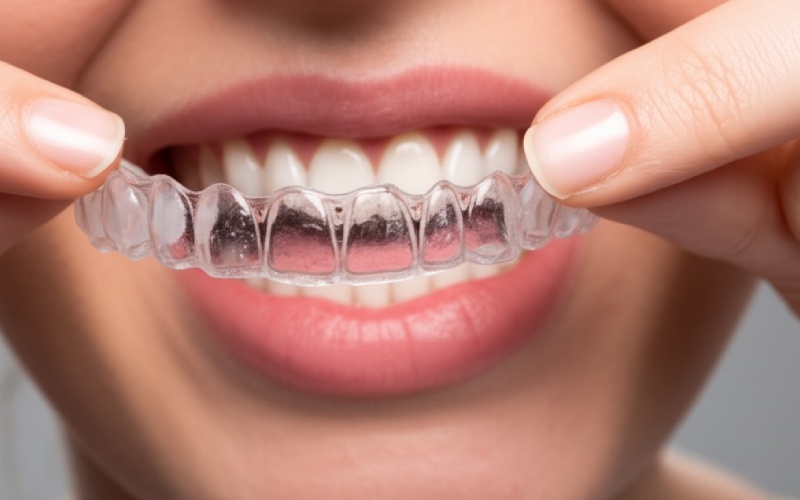
7. Do OTC Snoring Mouthguards Actually Work? The Evidence
Let’s drop the sugar coating.
What Real Studies Show
- For basic snoring (no sleep apnea):
OTC mouthguards can lower how often and how loudly you snore for a lot of people, sometimes by half or more. - For mild sleep apnea:
Can help a bit, but it’s hit or miss. Custom dentist guards usually work better. - For worse sleep apnea:
OTC mouthguards aren’t enough. You really want a custom device or a CPAP machine.
Custom vs Store-Bought
- Custom devices from the dentist: Fit better, feel better, last longer, and work great for sleep apnea.
- Store-bought (OTC) mouthguards: Cheap, easy to try, but may not fit as nice, not as tough or comfy.
People’s Experience
Most people who last a few months with an OTC mouthguard notice less snoring. About half stop using them after a year, mostly because of fit or comfort.
Bottom line? It’s not a magic fix, but they help a lot of people—especially to get started.
8. How to Choose the Right Device
Thinking about giving it a go? Don’t just pull the first box off the shelf. Here’s what to look for:
Smart Questions
- How does it fit? Too tight or too loose, and it won’t help (or could hurt).
- Can you adjust it? If you’re new, adjustable types are nice.
- Quality materials: Pick FDA-cleared, BPA-free plastics or medical silicone.
- Easy to wash: You need to clean it every day, so make sure it’s not fiddly.
- Check reviews: See what folks say about comfort, results, and how long it lasts.
- FDA badge: Don’t fall for strange online gadgets.
How-To: Fitting a Boil-and-Bite Mouthguard
- Read the directions. Don’t skip this step.
- Boil water, dunk the mouthguard as the box says.
- Let it cool a second (not too long—you want it still soft, not burning hot).
- Put it in your mouth, bite gently, and suck out any extra air.
- Use your fingers to press and shape it to your teeth and gums.
- Hold for the time it says.
- Rinse with cold water to set it.
Check the fit. It should feel snug, not hurt your jaw or teeth.
9. When to See a Doctor (Don’t Ignore These Signs)
Mouthguards can help, but sometimes snoring means something worse.
Call your doctor or see a sleep pro if you:
- Snore super loud most nights (or someone hears you stop breathing, gasp, or choke)
- Always feel tired, fall asleep in meetings, or wake up with head pain
- Find out you have high blood pressure, or heart issues
- Are told you stop breathing while you sleep
- Tried a mouthguard, but nothing changed
This could be Obstructive Sleep Apnea (OSA), which ups your risk for stroke, diabetes, and heart attack. OSA is usually treated with custom dental devices, a CPAP, or other doctor-ordered treatment—not just a store mouthguard.
How is it found?
A doctor might order a simple overnight home test or a sleep clinic visit to figure out the real problem.
What Else Can Help?
- Custom dental guards: Great for mild or medium sleep apnea or if you can’t use CPAP.
- CPAP machines: Best for moderate to bad sleep apnea.
- Surgery: Sometimes used, but only if nothing else works.
10. Care, Cleaning, and Lifespan: Keeping It Working and Safe
This thing goes in your mouth—so keep it clean.
Cleaning Tips
- After each use: Rinse with cool water, brush lightly with a soft toothbrush (no grit toothpaste).
- Once a week soak: Drop it in a solution for dentures or some soapy water.
- Let it air dry: Use a case that lets air get in.
- Never use harsh chemicals: Bleach or mouthwash can mess up the plastic or silicone.
When Do You Get a New One?
- Cracked, ripped, or feels weird? Get a new one.
- Normal life: About 6-12 months for most store mouthguards, longer if you’re gentle.
Lost or Broken?
Best to toss it and replace, so you don’t have a bacteria farm or a mouthguard that isn’t doing its job.
11. Other Snoring Solutions: Lifestyle and Medical Care
OTC mouthguards help many people, but they’re just one piece of the puzzle. Here’s what else helps:
Simple Changes That Cut Snoring
- Lose weight: Even a little bit can really open your throat at night.
- Sleep on your side: Try sewing a tennis ball to your pajama back—old school, but works.
- Skip booze or sleeping pills before bed: These relax your throat muscles.
- Clear your nose: Try nose strips, sprays, or allergy pills if you’re stuffed up.
- Stick to a normal sleep schedule.
Doctor’s Options
- CPAP: For diagnosed sleep apnea. Blows gentle air so your airway stays open.
- Custom dental mouthguards: Dentist can make one to fit you exactly.
- Surgery: For really tough cases—only after you’ve tried the rest.
12. Key Takeaways and Next Steps
Quick recap before you log off for some well-earned shut-eye.
Fast Facts
- OTC snoring mouthguards work for many with basic snoring.
- Two big types: moving your jaw (MADs) or holding your tongue (TRDs).
- They help by opening your airway just a bit to lower snoring.
- Cheaper, simple to use, good place to start.
- Side effects are usually mild, like jaw or tooth soreness, or drool.
- Not enough for bad sleep apnea.
- If you have awful sleep, daytime sleepiness, daily headaches, or choking, see a doctor.
What to Do Now
- Pick a solid, FDA-cleared mouthguard that runs with your wallet and your life.
- Fit it as the box says. Don’t skip the steps.
- Check how you’re sleeping: Are you (and your bed partner) happier? Still sleepy during the day?
- Be real with yourself: If sleep and snoring aren’t better, ask your doctor what else to try.
- Take care of your mouthguard: Clean it every day, and grab a fresh one if it gets yucky or falls apart.
Last Words
You deserve great sleep—and so does anyone nearby! Over-the-counter snoring mouthguards are a good first move. Everyone’s mouth and airway are different, so you might need to try a few. With a little patience, some honest self-checks, and help from the pros if you need it, better sleep is possible.
Sources:
- American Academy of Sleep Medicine
- National Sleep Foundation
- FDA Medical Device Database
- Poyares D, et al. “Comparison of over-the-counter and custom-made mandibular advancement devices for treatment of snoring and obstructive sleep apnea syndrome.” Sleep Science. 2013.
This article is for general information and isn’t medical advice. If you’re worried about your snoring or sleep, talk to your doctor or dentist.

